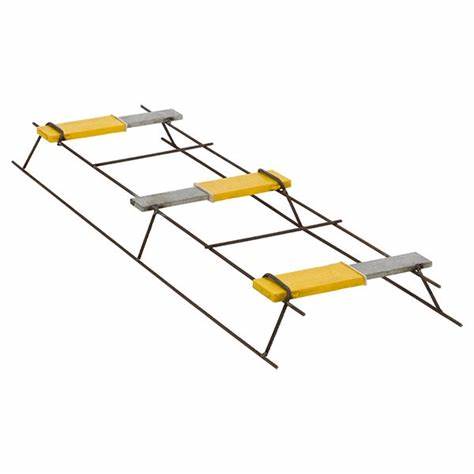
- Mobile Phone
- +8613931874955
- sales@cntcmetal.com
Understanding the Expenses Associated with Cavity Wall Ties Installation and Maintenance Costs
Understanding the Costs of Cavity Wall Ties
Cavity wall ties are critical components in the construction and stability of cavity walls. These walls consist of two layers (or leaves) of masonry with a gap or cavity in between, which serves to improve insulation and moisture resistance. Wall ties are used to connect the inner and outer walls, providing structural integrity and preventing collapse or separation due to environmental forces or shifting.
Importance of Cavity Wall Ties
The primary role of cavity wall ties is to ensure stability and strength. They help transfer loads and resist lateral forces that may be exerted by wind or other pressures. Additionally, they serve as a crucial barrier against moisture ingress, thereby protecting the interior of buildings from issues related to water damage. The cost of cavity wall ties, while often overlooked, can significantly impact overall construction and maintenance budgets.
Factors Affecting the Cost of Cavity Wall Ties
1. Material Type Cavity wall ties can be made from various materials, including stainless steel, galvanized steel, plastic, and more. Stainless steel ties, while more expensive, offer superior durability, corrosion resistance, and longevity, which can lead to reduced maintenance costs over time. On the other hand, cheaper materials may have lower initial costs but could require replacement sooner, leading to higher long-term expenses.
2. Design and Specification The design requirements of a building can affect wall tie costs significantly. Factors such as the thickness of the cavity, the type of masonry used, and the structural loads will influence the selection and quantity of ties needed. Custom-designed ties may also incur additional costs due to specialized manufacturing or engineering consultations.
cavity wall ties cost

3. Quantity and Scale of Application The total cost of cavity wall ties is directly related to the scale of the construction project. Larger buildings will require more ties, which increases overall expenditure. However, purchasing in bulk can lead to discounts, so it is essential to consider both the quantity needed and the potential for cost savings.
4. Installation Costs While the price of the wall ties themselves is a key factor, installation costs should not be overlooked. Hiring skilled labor to install wall ties correctly is crucial for ensuring the structural integrity of the walls. Proper installation can prevent future issues that could arise from incorrectly placed or insufficient ties.
Estimating Costs
On average, the cost of cavity wall ties ranges from $0.50 to $3.00 per unit, depending on the factors mentioned above. For a typical residential project, a builder may calculate the total cost by estimating the number of ties needed based on the wall's height and cavity size, in addition to the material costs. Including labor for installation, the overall expenditure can vary significantly.
Conclusion
Understanding the cost implications of cavity wall ties is essential for anyone involved in construction, renovation, or property management. While the initial investment in quality wall ties may seem high, their role in maintaining building integrity and preventing costly future repairs makes them a worthwhile expense. Careful planning, material selection, and consideration of installation requirements can ultimately lead to cost savings and enhanced building performance over time. Investing time and resources in understanding these costs can contribute significantly to the long-term success and safety of any construction project.
share:
-
Your Source for Concrete Wall Ties and Masonry AccessoriesNewsJul.10,2025
-
Unlocking the Power of Iron Wire for Every ProjectNewsJul.10,2025
-
Explore Advanced Chain Wire and Stainless Steel Mesh FencingNewsJul.10,2025
-
Discover the Benefits of Annealed Wire ProductsNewsJul.10,2025
-
Discover China Stainless Steel Wire Mesh SolutionsNewsJul.10,2025
-
Build with Confidence Using High-Performance Masonry AccessoriesNewsJul.10,2025
-
Why Sacrificial Formwork Is Redefining Underground ConstructionNewsJun.06,2025



















